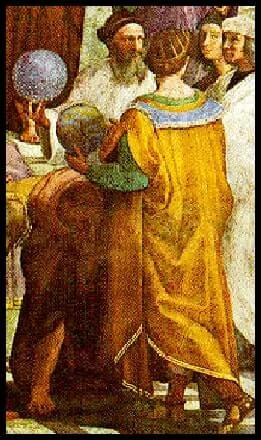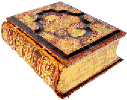
FOUR BOOKS OF THE INFLUENCE OF THE STARS
TRANSLATED FROM THE GREEK PARAPHRASE OF PROCLUS By J. M. ASHMAND
It is fair to say that Claudius Ptolemy made the single greatest contribution to the transmission and preservation of astrological and astronomical knowledge of the Classical and Ancient world. No study of Traditional Astrology can ignore the importance and influence of this encyclopaedic work. It speaks not only of the stars, but also of a distinct cosmology that prevailed until the 18th century. Ironically, it is easy to jeer at someone who thinks the earth is the cosmic centre and refers to it as the sublunary sphere. However, our current knowledge tells us that the Universe is infinite, as far as we know. It seems to me that in an infinite universe, any given point must be the centre. Sometimes scientists are not so scientific. The fact is, it still applies to us for our purposes.
In practical terms, the Moon does have the most immediate effect on the Earth which is, after all, our point of reference. She turns the tides, influences the vegetative growth and menstrual cycles. In fact, she influences the weather itself.
What has become known as the Ptolemaic Universe, consisted of concentric circles emanating from Earth to the eighth sphere of the Fixed Stars, also known as the Empyrean. This cosmology is as spiritual as it is physical. It is a decidedly moral cosmology. No apologies are made for political incorrectness.
Ptolemy was first and foremost an anthologist. This knowledge came to him from Egypt, Greece, Chaldea, Babylonia and beyond. More to the point, he was in the enviable position of being in Alexandria during the peak of its eminence. Alexandria was in intellectual and spiritual foment. Ptolemy is clearly drawing from a wide range of sources in Tetrabiblos. His articulated cosmology has become known by his name. Whatever your thoughts on the status of Ptolemy, he remains required reading for anyone interested in the history of the celestial arts. His influence on Renaissance astrologers was profound in and of itself.
BOOK THE FIRST
CHAPTER 1
PROEM
The studies preliminary to astronomical prognostication, O Syrus! are two: the one, first alike in order and in power, leads to the knowledge of the figurations of the Sun, the Moon, and the stars; and of their relative aspects to each other, and to the earth: the other takes into consideration the changes which their aspects create, by means of their natural properties, in objects under their influence.
The first mentioned study has been already explained in the Syntaxis 1 to the utmost practicable extent; for it is complete in itself, and of essential utility even without being blended with the second; to which this treatise will be devoted, and which is not equally self-complete. The present work shall, however, be regulated by that due regard for truth which philosophy demands: and since the material quality of the objects acted upon renders them weak and variable, and difficult to be accurately apprehended, no positive or infallible rules (as were given in detailing the first doctrine, which is always governed by the same immutable laws) can be here set forth: while, on the other hand, a due observation of most of those general events, which evidently trace their causes to the Ambient, shall not be omitted.
It is, however, a common practice with the vulgar to slander everything which is difficult of attainment, and surely they who condemn the first of these two studies must be considered totally blind, whatever arguments may be produced in support of those who impugn the second. There are also persons who imagine that whatever they themselves have not been able to acquire, must be utterly beyond the reach of all understanding; while others again will consider as useless any science of which (although they may have been often instructed in it) they have failed to preserve the recollection, owing to its difficulty of retention. In reference to these opinions, therefore, an endeavour shall be made to investigate the extent to which prognostication by astronomy is practicable, as well as serviceable, previously to detailing the particulars of the doctrine.
 AstroLibrary 🔎
AstroLibrary 🔎